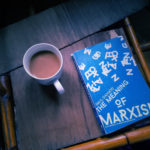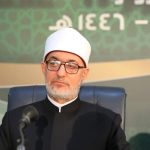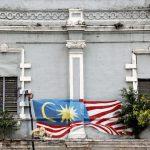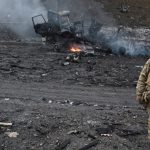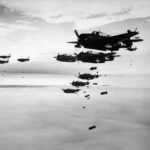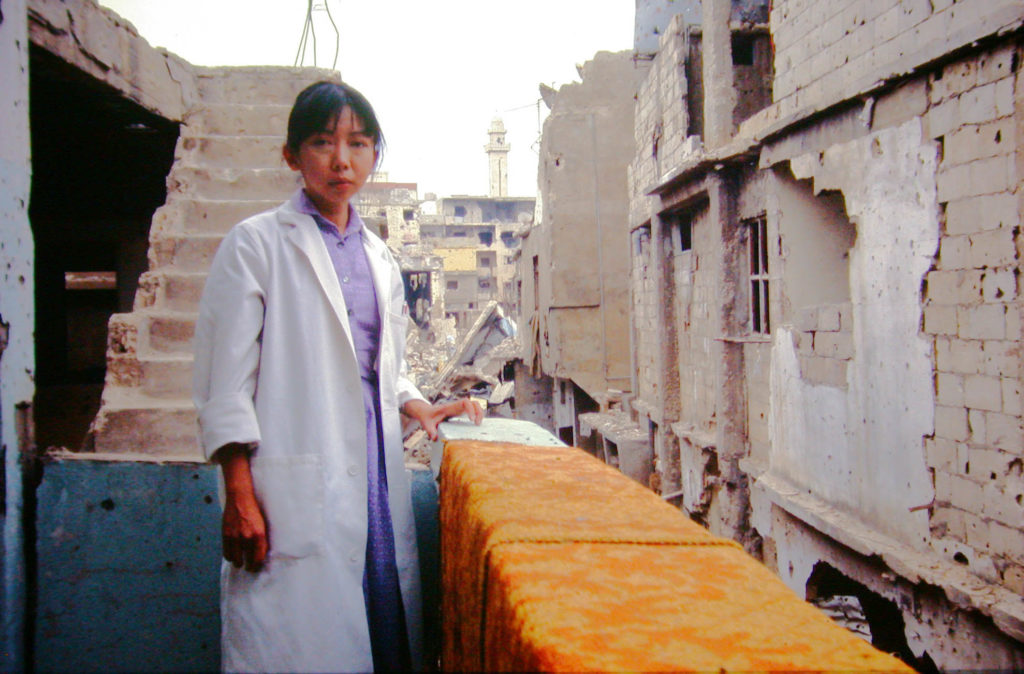
By: Dr. Ang Swee Chai
I grew up in Singapore. When I was 19, I attended a Billy Graham Crusade and made the decision to follow Jesus. At that time I did not know that meant discipleship. I had not heard of his disciples like Nathanael, nor Andrew, nor Phillip, nor Simon and how with the exception of John, they were all martyred. My parents were Chinese speaking atheists. I also had no idea Jesus was a Jew!
Soon after that I was baptised in a Fundamentalist, Pro-Israel church. I taught Sunday school, including the conquest of Canaan, David and Goliath, and the victory of Elijah against the Philistines. For me, the Abrahamic Covenant only consisted of the Promised Land to God’s chosen people Israel. The creation of the State of Israel in 1948 transitioned neatly into a re-run of the Old Testament. We saw it as the fulfilment of God’s prophesied plan for his people Israel in the Old Testament. Later that year we all rejoiced when Israel won the Six Day War. We were filled with pride and triumphalism that Israel had defeated the Arabs decisively.
I read the Old Testament and connected to the State of Israel without taking into consideration Jesus and the New Testament. I did not understand that the most important part of the Abrahamic Covenant was the promise of a Saviour through whom all nations will be blessed. I found out later that what Jesus spoke about to his followers in Matthew 5, was not inheriting the Land but inheriting the Earth and the Kingdom of Heaven.
Thank God, I married a human rights lawyer. Two weeks later he fled arrest by the security police. A month later I was arrested for questioning. That was the first time I was put in prison. (Some of you might know that I had been in prison a couple more times since! The latest being in 2018 when I was medic on board the Freedom Flotilla Awda loaded with antibiotics and dressings for Gaza. The boat was abducted in international waters. All on board were taken to prison in Ashdod and cargo and boat impounded to this day.)
Upon release from Singapore prison, I found my husband in London and we both became political refugees. It was a great comedown. From being middle class professional Singaporeans we became homeless, jobless and stateless refugees. We struggled desperately to rebuild our lives.
In 1982, five years later, we were just about sorted out. I had become a Fellow of the Royal College of Surgeons of England and was working in St Thomas’ Hospital. My husband found work as a journalist. We had a permanent place to live in.
But God was about to change things.
The television ran nightly news on a war in Lebanon. The country was relentlessly bombed. Its capital Beirut was held siege. Food, medicine, water and electricity were blockaded. Although portrayed as a war against the terrorist Palestine Liberation Organisation, it was clear that the bomb targets were civilians – hospitals, schools, homes, factories, shops – and not terrorists. The headlines were 14,000 killed and tens of thousands made homeless a few weeks into the war. There were pictures of wounded victims, many children, some dying, in partially bombed hospitals. Charred bodies were pulled out of bombed out buildings, including bodies of small children.
My heart was torn apart watching the suffering. It was made worse when I learnt that the offensive was by Israel. I became restless and anxious for the victims.
How could Israel do this? To compound matters, my Christian friends were celebrating the death and destruction citing Biblical verses, calling this the work of God’s hand!
How should a Christian surgeon respond? What would Jesus say? I needed wisdom and guidance, but my immediate circle provided none. Finally God spoke. In Corinthians, the Apostle Paul wrote about “seeing darkly as through a glass, but one day we will see face to face” and about how we “are children and thought and spoke as children, but when we grow up we will put aside childish things”. He went on “Faith, hope and love endure forever, but the greatest of these is love. “ I began to ask God “How?”
A week later an appeal came from Christian Aid for a volunteer orthopaedic surgeon to treat the wounded. God had answered my prayers. I resigned from St Thomas’ Hospital, joined Christian Aid as a volunteer surgeon on their medical team and left for Beirut. For the first time that summer my heart was at peace.
We had to get to Beirut by sea since the airport was bombed. The ferry was not able to land as the war planes pounded this capital continuously for 36 hours. We got in when there was a gap in the bombing.
The situation was hideous, blocks and blocks of high rise buildings reduced to heaps of rubble – just as on television – only this time life size and three dimensional. Homeless families were all over the pavements and road sides. Hundreds were buried under the rubble. There was no water and electricity. I started work in the converted basement carpark of the Near East Theological College treating horrendous war injuries – the young, the old, men, women and babies.
Meanwhile, Israel had threatened to flatten the whole of Lebanon to get the PLO.
Ten weeks after the war started, fourteen thousand members of the PLO agreed to leave Lebanon forever in exchange for a ceasefire. The USA had agreed that their families left behind would be protected by a multinational peacekeeping force.
With the evacuation, I was seconded to work for the Palestine Red Crescent Society, a member of both the International Red Cross and the PLO. Eight of their hospitals and 13 clinics were totally destroyed. The only hospital standing was Gaza Hospital. I was to set up an orthopaedic trauma department for that hospital.
Gaza Hospital overlooked Sabra Shatilla, one of the fourteen Palestinian refugee camps in Lebanon. For someone who grew up seeing Palestinians as terrorists, I was shocked and outraged to learn of how the refugee camps came into existence.
In 1948 half the population of Palestine – 750,000 persons – were driven out of their homes at gunpoint and the threat of being massacred. They fled into the neighbouring countries of Lebanon, Syria, Jordan, and Egypt. Their country Palestine became Israel and they were never allowed to return home. Over the years their tents gave way to buildings and the refugee camps became towns. Here children were born refugees, grew up refugees and died refugees.
The world moved on and they were forgotten. They remained stateless since Palestine no longer existed
Every single home in the refugee camps was destroyed – either totally or partially. I watched women with young children and elderly relatives, many also wounded; carrying their belongings back to these ruins. They had lost loved ones through the evacuation, through the bombs, but they once again started to repair their damaged homes, clear the rubble, paint the walls, support each other and pick up their broken lives.
These people had suffered so much yet remained so human, generous, kind and dignified. I was overwhelmed by their generosity in the midst of their poverty. Their story was not in any history textbook, but every Palestinian child knew the name of their village in Palestine. Many of these villages had already been blown up after they left. Gaza Hospital was named after the Gaza Strip in Palestine.
I sat in their bombed out homes while they served me Arabic coffee and shared their meagre United Nation food rations with me. The women introduced me to their traditional Palestinian embroidery of stunning beauty. Patterns and motifs typical of their home villages they left behind in Palestine were sewn on black cloth with brilliantly coloured silk threads. Each stitch is a testimony of their history, heritage, culture and resilience.
I fell in love with the Palestinians – but was still wondering at the back of my mind how come they were labelled terrorists.
Three weeks later the Multinational Peacekeeping Force protecting the Palestinian refugees abruptly withdrew and the land invasion by Israeli tanks took place. Hundreds of tanks over-ran West Beirut and some surrounded Sabra Shatilla. They sealed Sabra Shatilla so no one could escape and sent their allies, the right-wing Christian Phalanges into the camps. What followed was the infamous, savage Sabra Shatilla Massacre killing 3,500 Palestinians and Lebanese.
Our surgical team worked non-stop for 72 hours till we were forced out of Gaza Hospital at machinegun point. We had worked 72 hours non-stop in the basement operating theatre, for the most part without food and water, to save a few dozen lives – only to emerge to find out that people were killed by the thousands in the camp. Many of them were tortured before death, and women were raped before being killed.
Groups of camp people were held captive along the road we were forced to march along. From their terrified faces, they knew they were going to be killed. A young mother tried to give me her little baby – hoping I could take it to safety. Both were killed.
The Massacre had exploded the myth that Palestinians are terrorists. The heaps of bodies in the camp alleys finally convinced the world that they were the victims of terror. Robbed of their homeland, driven to live in poverty and insecurity in the refugee camps, they were finally butchered on foreign soil. On each dead body was a refugee identity card stating their place of origin in Palestine. Most of the dead were refugees from Galilee.
Up till then I had lived 33 years without knowing Palestinians existed. I bought into the lie that they were terrorists. I used to be that strident Zionist Christian teaching my Sunday school children that
Israel must annihilate the PLO terrorists. I got blood on my hands. I felt crushed. I asked God to forgive me for my prejudice and bigotry against them. They are the children of God and my brothers and sisters.
Palestinians can only suffer and die daily because we fail to see them as human beings, and choose to walk the other way. I can no longer walk away. I asked God for forgiveness, I must also repent. Just crying and feeling sorry were not enough. Like Zacchaeus on that sycamore tree in Jericho, and Paul on the Damascus Road, my life had to change. “Lord – take my life and use it for these people whom we have collectively wronged. Please give me a second chance to serve them. Teach me to love them more and more”.
This is my thirty eighth year journeying with the Palestinians. They have accepted me as their family.
That journey brought me to the Occupied Palestinian Territories where brutal abuses of human rights take place daily.
In the West Bank daily arbitrary arrests and house demolitions are the norm. In 2019 alone five and a half thousand Palestinians were arbitrarily arrested, of which 889 were children and 128 were women. West Bank is imprisoned behind a seven hundred kilometre separation wall cutting through homes, schools and farms.
Gaza has been blockaded for 12 years and bombarded by land, air and sea with several thousand killed and many more made homeless. Among the dead were more than a thousand children. Electricity is scarce and safe drinking water non-existent. Since March 2018, more than three hundred unarmed demonstrators asking for the right to return home were shot dead by snipers, with 36,000 wounded, a third of them children and women. More than 1,500 will never walk again due to high velocity sniper wounds to their legs.
As we celebrate 2020, Gaza has become unliveable. My latest attempts to go and help Gaza resulted in being imprisoned and deported.
I pray that God will give me courage to continue to be faithful to them in the face of persecution. I must have faith that after the crucifixion comes resurrection. I have often been asked by my Palestinian friends “Swee – as Palestinians we are born to suffer and have no choice. But why do you not walk away?” I recall Jesus asking His disciples the same question “Will you also walk away?” Peter replied “Lord – to whom shall we go? You have the words of life.” How can I walk away and stay human?
For me, being with the Palestinians is a great blessing from God. I identify with David when he was broken before God in deep gratitude saying: “Who am I Sovereign Lord, and what is my family, that you brought me this far?”
As a surgeon, I mend wounds. But I am a human being. I must speak up about how they were caused. Since that time, I have a passion to speak out in obedience to God’s command “speak up for those who cannot speak for themselves, for the rights of all who are destitute. Speak up and judge fairly; defend
Some people are called to speak on behalf of the unborn because they cannot speak for themselves. Others are called to speak up for the environment. I am called to speak up for the Palestinians.
Speaking up invites persecution. Each time before I speak in public I pray Second Timothy 1:7 “For God hath not given us the Spirit of fear, but of Power, and of Love and a Sound Mind”.
I still have with me my picture of destitute Palestinian children of Shatila camp standing amidst the ruin and rubble. They survived the massacre but lost their parents and homes. In the foreground of the picture were dead and decaying bodies; in the background their destroyed homes. The air was filled with the stench of decomposing bodies. But between death and destruction were the Palestinian children. As I focussed my camera, they raised their hands in the victory sign and said to me: “We are not afraid, let Israel come”. I have returned many times to the camps looking for them. I have never been able to find them again. They must have perished since. Their wish was for me to show their picture to all my friends, the picture of them standing courageously against this dark uncaring world. I have honoured that wish.
They live forever in my heart. Whenever the situation becomes unbearable, I revisit this picture for strength. There will be no turning back from this journey towards humanity. And today I invite you to join us too.
St Pauls, Cambridge, 12 January 2020. Dr Ang Swee Chai is the Founder Medical Aid for Palestinians.
Related Posts
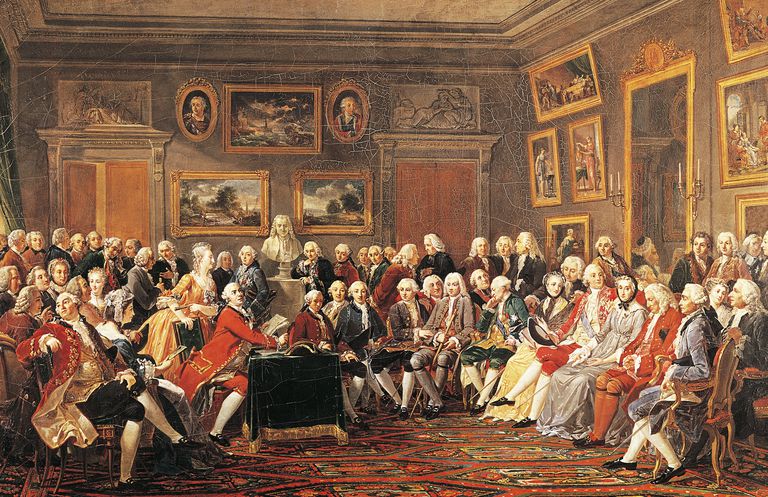
Kami mengalu-alukan cadangan atau komen dari pembaca. Sekiranya anda punya artikel atau pandangan balas yang berbeza, kami juga mengalu-alukan tulisan anda bagi tujuan publikasi.
